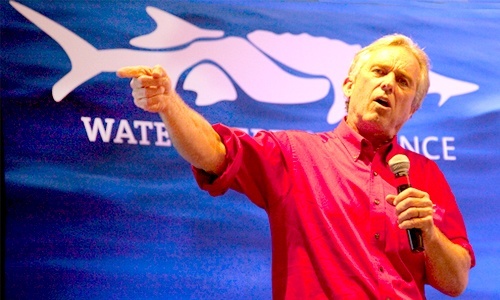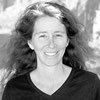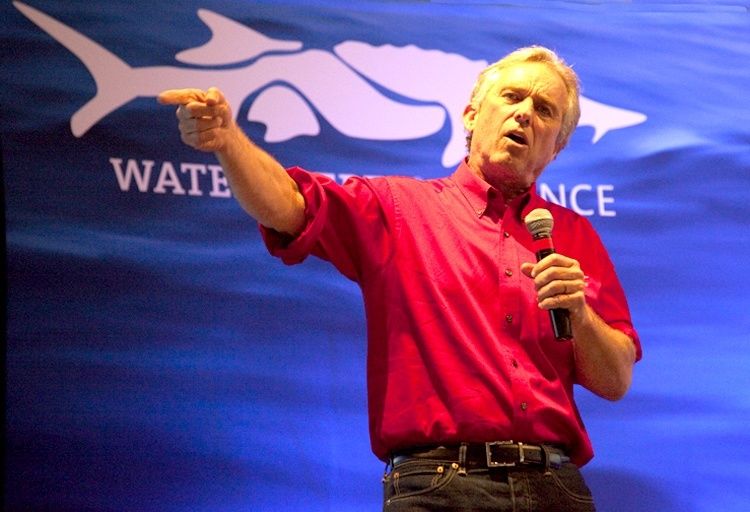
Koch Brothers: Apocalyptical Forces of Ignorance and Greed, Says RFK Jr.


Speaking to a group of activists, including more than 200 Waterkeepers from 30 nations, Kennedy declared, “We are engaged, as Abraham Lincoln said, ‘in a great Civil War.'” This time, he said, “the conflict involves all the Earth’s peoples. It’s not just a battle to protect our waterways, our livelihoods, our property and our backyards. It’s a struggle for our sovereignty, our values, our health and our lives. It’s a battle for dignified humane and wholesome communities. It’s a defensive war against toxic and economic aggression by Big Oil and King Coal. It’s a struggle to break free of the ‘soft colonialism’ of carbon’s corporate tyranny and create an economic and energy system that is fair, rooted in justice, economic independence and freedom.”
He started by talking about the disproportionate impact of pollution on the poor and minorities. “Polluters,” he explained, “assault soft targets first—and that means the poor.” He recounted how the majority of toxic industrial sites and noxious facilities are in lower income communities where residents lack political power or connections to protect themselves. He gave examples of these environmental injustices including, Emelle, Alabama, which is home to the largest toxic waste dump in America—one of the country’s most impoverished regions where one-third of the residents live below the poverty line and more than 65 percent of the residents are black—Chicago’s south side, which has more toxic waste sites than any other American community and East Los Angeles, a primarily black and Hispanic community, which is the most contaminated zip code in America.
“In these communities,” he said, “Not just the land and water, but the people have been commoditized—and everything becomes expendable in the drive for corporate profits.”
But he added, “It’s not just the poor who are under assault. The corporate hunger for profit is threatening all people with loss of their natural world and the other assets of their patrimony.”
Kennedy said that corporate efforts to privatize the commons are occurring in all parts of the world and that “environmental injury correlates almost perfectly with political tyranny.”
“In China, Eastern Europe and the Soviet Union, environmental destruction went hand in hand with political despotism and corruption,” he continued. “Thanks to the Pinochet regime, the forests and waters of Chile are no longer owned by the Chilean people. Every single river in Chile is now owned by a Spanish company, Endessa which plans to dam all of them for private profit. So the people of that nation no longer own their rivers, they don’t own their forests. Even the highways, railroads, utilities, airports, stadiums and prisons—all the public spaces that once formed our civic lives are being occupied by private and corporate wealth.”
Kennedy recalled that during the 1994 campaign to save the iconic BioBio river from Endesa’s dam builders, the Chilean human rights lawyer, Juan Pablo Ortega had lamented, “Supposedly we have a democracy after Pinochet left, but it’s folly to call a system a ‘democracy’ when the people have no control over their resources. We Chileans are no longer the sovereigns of our lands.”
Kennedy assured the crowd that “This is what the battle is about. It’s about losing control of the commons. The air, the water, the wildlife, the fisheries and public lands, the shared resources of our society: The commonwealth assets that provide the gravities around which communities coalesce.”
To give context to the history, Kennedy talked about the many environmental insults in the 1960’s that spurred the modern-day environmental movement, including the 1963 extinction of the Eastern Peregrine Falcon from DDT poisoning, the burning of the Cuyahoga River, the Santa Barbara oil spill and the declaration that Lake Erie was dead, which all occurred in 1969. The Santa Barbara spill held the record for the largest oil spill until Exxon Valdez and the BP Deepwater Horizon. In those three examples, polluters had effectively privatized a major American river, one of the Great Lakes and all the beaches in Southern California.
In response to such insults, in 1970, 20 million Americans, 10 percent of our population, came out on the streets for the first Earth Day in “a democratic reassertion of popular sovereignty over the common’s, those crowds demanded that our political leaders return to the American people the ancient environmental rights that had been stolen from our citizens since the Industrial Revolution,” Kennedy said.
In response to this massive public outpouring, Republicans and Democrats working together passed, over the next 10 years, 28 major environmental statutes, including the Clean Air Act, the Clean Water Act, Endangered Species Act, the Safe Drinking Water Act, RCRA, TSCA, FIFRA, The Federal Mine Safety and Health Act and Superfund. All of these statutes were intended to restore our rights to the public commons. What happened next? “These new prohibitions against corporate pollution hurt the industry’s bottom line. So the polluters fought back,” he declared.

 233k
233k  41k
41k  Subscribe
Subscribe 
